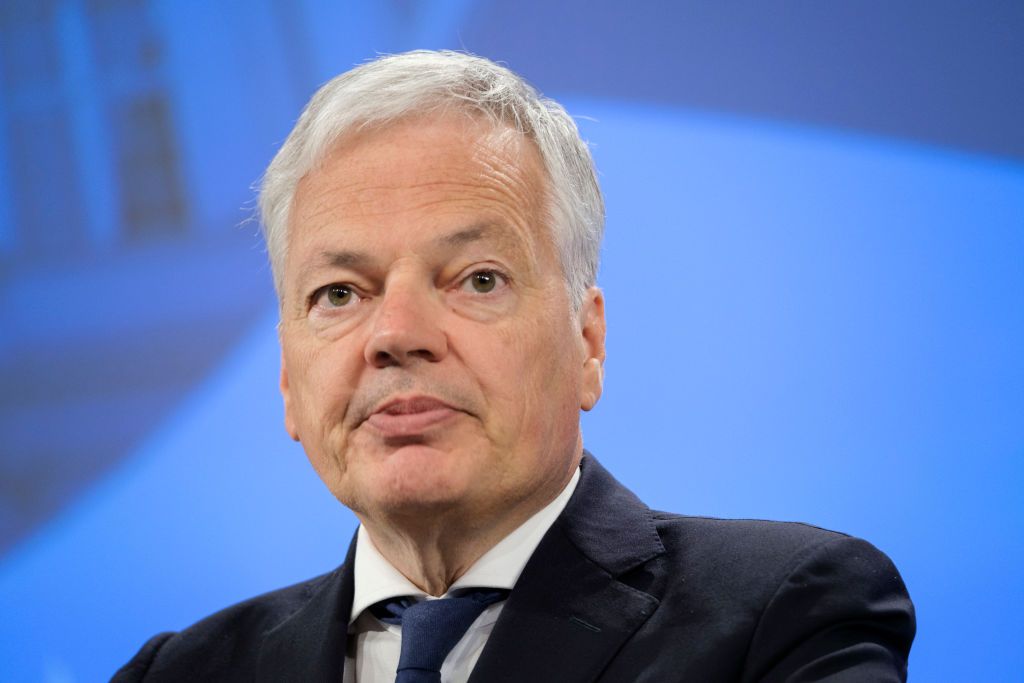Russia prepares to damage Zaporizhzhia nuclear plant, Zelensky warns
Key Developments on July 4th:
- Ukraine is preparing for a possible Russian attack on a nuclear power plant
- According to reports, the Zaporizhia nuclear power plant is losing connection to its main line
- A Russian missile attack in Pervomaiskyi injured 43 people, including small children
- Ukrainian forces advance up to 2 km in multiple directions
- The Luftwaffe shoots down 26 Russian drones overnight
President Volodymyr Zelenskyy said in his evening address, citing secret services, that Russia was preparing “a provocation” at the Russian-occupied Zaporizhia nuclear power plant.
According to Zelenskyy, Russian forces planted explosives on the roofs of two power plants.
The General Staff of the Ukrainian Armed Forces reported in its evening update that Russian troops are preparing an attack “in the near future”.
“Their detonation should not damage engines, but could give the impression of shelling by the Ukrainian military,” the general staff said.
Meanwhile, Renat Karchaa, an adviser to the chief of Russian nuclear power plant operator Rosenergoatom, claimed that “Ukraine” would attack the nuclear power plant overnight on July 5 with “precision weapons and kamikaze drones,” according to Russian state agencies.
Karchaa claimed Ukraine intended to hit the facility with a Tochka, a Soviet-made tactical ballistic missile, “with a warhead full of radioactive waste.”
Russia regularly blames Ukraine for attacks it has carried out itself.
“Now the whole world must realize that common security depends solely on global attention to the actions of the occupiers at the station,” said Zelenskyy.
Against the background of the situation around the nuclear power plant, the Ukrainian Ministry of Health issued recommendations on how to behave in a contaminated zone.
But the Director-General of the International Atomic Energy Agency, Rafael Grossi, in his July 4 press release, mentioned neither new installations on the roofs of the power plants nor a possible provocation by the Russian armed forces.
Living near the nuclear power plant occupied by Russia: “I don’t know if tomorrow will come”
Editor’s note: The Kyiv Independent has spoken to residents who are still in Russian-held Enerhodar and to those who have recently left the city but still have family in the city. For your security, we do not disclose your identity. When Russian soldiers conquered Enerhodar, the satellite town of the Zaporizhia…

Nuclear power plant disconnected from the grid
The Russian-occupied Zaporizhia nuclear power plant again lost connection to its external main power line overnight on July 4, Ukraine’s state atomic energy agency Energoatom reported.
Europe’s largest nuclear power plant in the occupied city of Enerhodar has switched to the only available 330-kilovolt emergency power line, which was recently reconnected after being inactive since March 1.
Until July 1, the Zaporizhia nuclear power plant relied solely on the single main power line for external power supply needed for reactor cooling and other critical functions.
Before the Russian occupation in March 2022, the Zaporizhia nuclear power plant had six spare lines and four main lines with 750 kV.
Europe’s largest nuclear power plant has been struggling with external power supplies ever since Russia launched its full-scale invasion of Ukraine and effectively occupied the plant.
Russian forces used the nuclear power plant as a military base to launch attacks on Ukrainian-controlled areas across the Dnipro River.
Due to Russian attacks on the country’s energy infrastructure, the power plant was completely disconnected from the Ukrainian power grid several times and had to rely on diesel generators.
On June 20, Zelenskyy, citing intelligence agencies, said Moscow was considering a terrorist attack on the nuclear power plant through radiation leaks.
Russian missile strike on Kharkiv Oblast injures 43
A Russian rocket attack on a residential area in Pervomaiskyi in Kharkiv Oblast injured 43 civilians, including 12 children, Governor Oleh Syniehubov reported on July 4.
The state rescue service reported that two small children were among the injured. Medics stabilized the 10-month-old boy, who was hospitalized after the attack in intensive care.
According to local authorities and emergency services, more children suffered injuries from shrapnel after the Russian missile attack damaged high-rise buildings and cars in Pervomaiskyi, a town of around 30,000 people.
The attack happened at 1:35 p.m. local time, the governor said.
Pervomaiskyi is 86 kilometers south of the regional capital and lies on the railway line connecting Kharkiv and Zaporizhia.
Prosecutor General Andriy Kostin reported that Russian troops had attacked the city with Iskander missiles.
The Attorney General’s Office opened an investigation into violations of the laws and customs of war.
Russian forces used Iskander missiles to attack Kramatorsk in Donetsk Oblast on June 27, killing 13 and wounding 60 others. Ukrainian writer and war crimes researcher Victoria Amelina died on July 1 as a result of her missile attack.
In addition, over the past day, Russian forces have fired over 20 rounds of loitering ammunition to attack Ukraine. The Air Force shot down 20 attack drones and six reconnaissance drones, spokesman Yurii Ihnat reported on July 4.
However, a drone struck Sumy, killing three and injuring 21 civilians, according to local authorities.
EU Chief Justice: We don’t wait for the end of the war to prosecute Russian crimes
As Russia’s war against Ukraine rages on, the European Union’s top justice official says the EU and its partners want to bring all perpetrators of international crimes to justice. “Not only war crimes, crimes against humanity and genocide, but also the crime of aggression,” said EU Commissioner…

Ukrainian forces advance
Ukrainian forces were advancing in a southerly and easterly direction, the military reported on July 4.
Tavria military command spokesman Valerii Shershen said Ukrainian troops advanced up to two kilometers towards Berdyansk.
Shershen also reported that Ukrainian forces are “consolidating the newly seized positions”, conducting aerial reconnaissance, clearing mines and shelling the Russian positions in the area.
Russian forces are attempting offensive operations in the Rivnopil sector of Donetsk Oblast while trying to repel Ukraine’s southward advance, the spokesman said.
Ukrainian forces were also advancing on the southern flank of Bakhmut in Donetsk Oblast, Deputy Defense Minister Hanna Maliar said on national television on July 4.
Russian forces are “using all their strength” to stop Ukraine’s advance in the south and east, the military official said.
Nevertheless, according to Maliar, Russian forces are conducting a “powerful offensive” in the direction of Lyman, Svatove and Bakhmut, establishing “three-stage, echeloned defense lines” there.
In the past week, Ukrainian forces liberated 28.4 square kilometers in the south and nine square kilometers in the east, Maliar reported on July 3.
‘It’s a lottery’: How Ukrainian assault brigade counterattacks near Bakhmut
Editor’s Note: The Kyiv Independent spent a day with soldiers of the 80th Separate Assault Brigade in June and the story consists of interviews with them about their experiences near Bakhmut. The soldiers are identified by their name or call sign, their locations are not revealed …


Alexander Chrebet
reporter
Alexander Khrebet is a reporter at the Kyiv Independent. He reports on Ukraine’s foreign policy, alleged abuses of power in the country’s military leadership and reports on the territories occupied by Russia. Alexander is a 2023 European Press Award Winner, a 2023 #AllForJan Award Winner and a 2022 National Investigative Journalism Award Finalist of Ukraine. His article has been published in the Washington Times and the Atlantic Council.